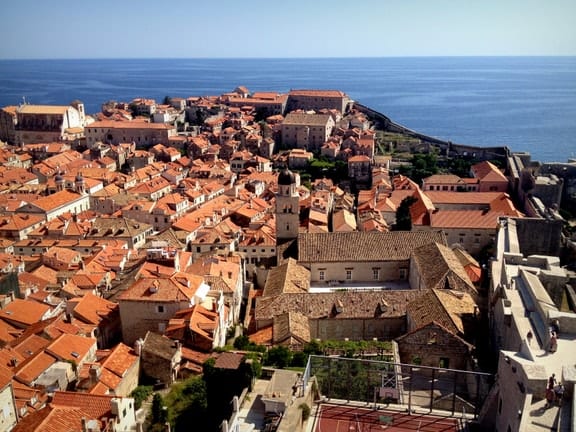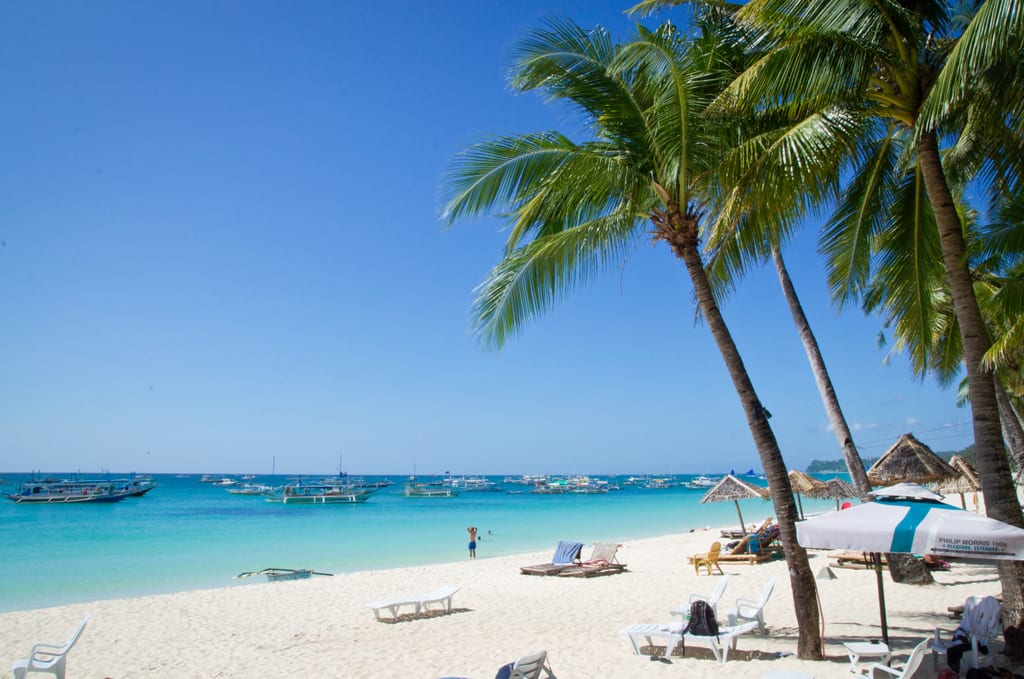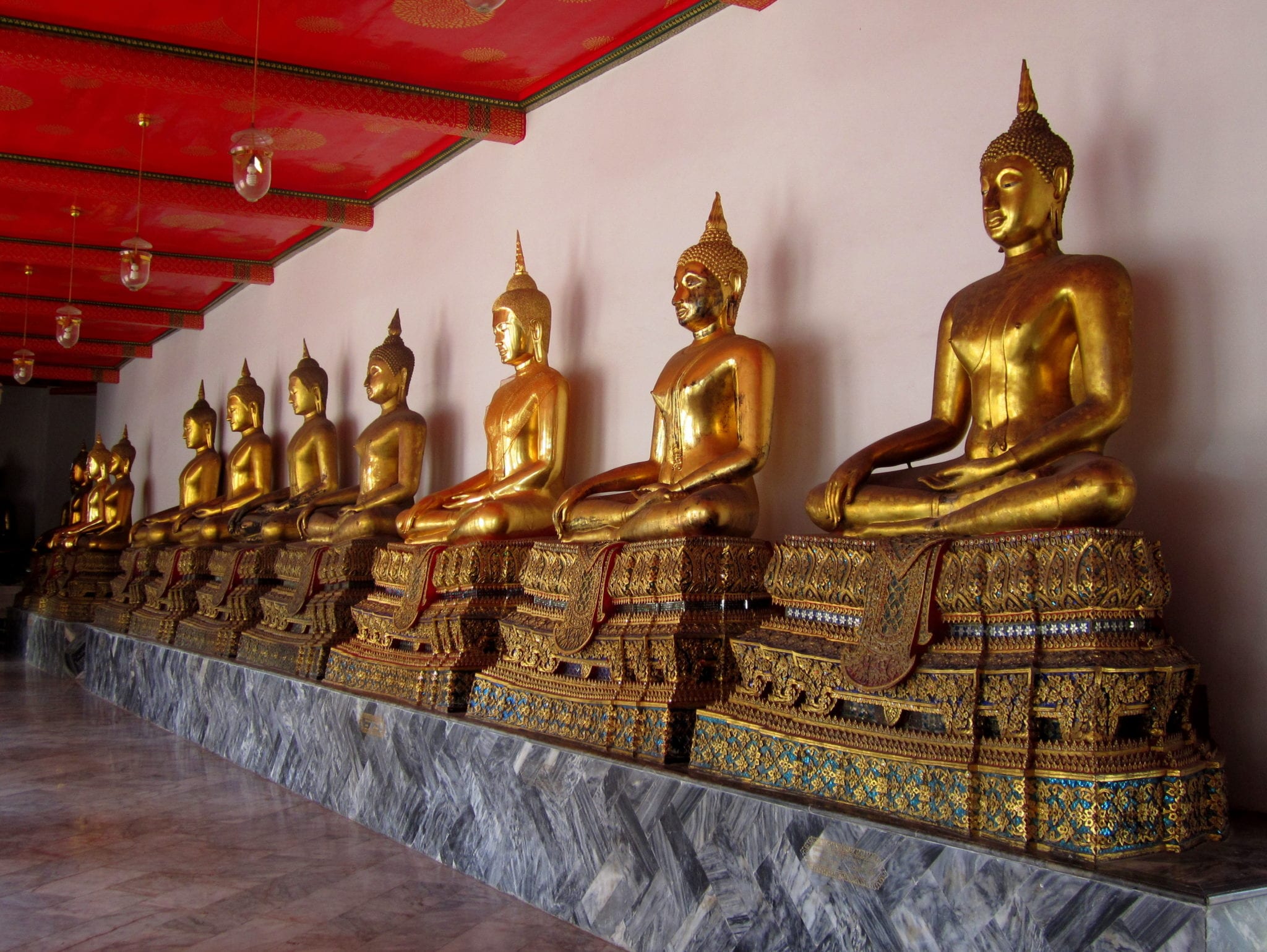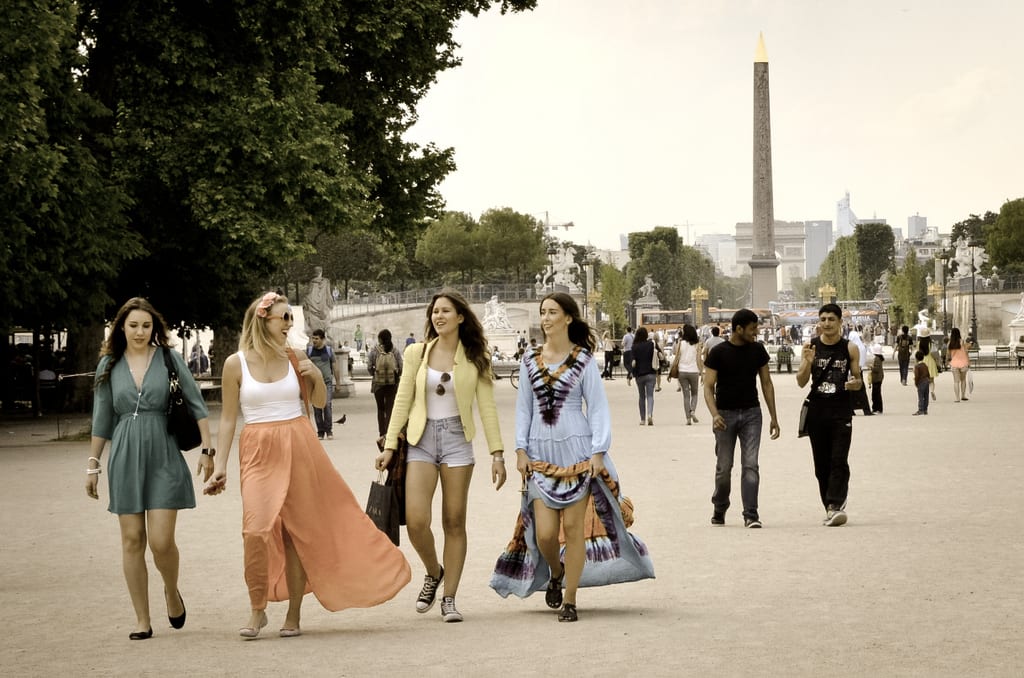Adventurous Kate contains affiliate links. If you make a purchase through these links, I will earn a commission at no extra cost to you. Thanks!
“You shouldn’t go there. It’s not safe.”
STOP.
As soon as you announce your upcoming travels, no matter to whom, you’ll probably be hit with at least one person saying, “It’s not safe.”
Whether the person is protesting the act of solo female travel — which is ridiculous — or travel to a particular destination, it’s important to evaluate whether or not this concern is warranted.
In short, when people voice concerns about your travels, it’s important to consider the source. Here are some examples of the most common sources that provide inaccurate or incomplete information.

The Concerned Loved One
“I don’t want you going to the Balkans. That’s not safe.”
You love your family and friends. You don’t want to upset them, but you want to be clear that the decision is yours. That’s why it’s critical that you walk the line between giving them the benefit of the doubt and taking their advice with a large grain of salt.
It’s possible that when your parents hear about Bosnia or Kosovo, they’ve only thought of those countries in the context of war, violence, or ethnic cleansing, when in reality, the Balkans have been safe for travelers for more than a decade. Likewise, they may lump Jordan in with more troubled countries in the Middle East like Syria, when in reality Jordan is an extremely safe place to travel.
You and I both know that these views are not accurate. And while you should do your loved ones the courtesy of listening to their concerns and discussing how you’ll stay safe, it’s important not to let their opinions overpower you to the point of changing your trip.
When listening to a concerned loved one, here are things to keep in mind:
Does this person travel?
Does this person travel in my style of traveling (i.e. backpacking as opposed to resort travel)?
Has this person been to this destination?
Has this person been to this destination recently (in the past 3-5 years)?
If the answer to all of these questions is yes, then you’ve most likely got a good source on your hands and should listen closely if he or she voices concerns for your safety.
Consider the source: while your loved ones obviously care about you, they are likely not the most knowledgeable source when it comes to your travel destination.

The Scary Government Warning
“U.S. citizens should continue to defer non-essential travel to ________, due to the high threat of kidnapping of international travelers and violence linked to insurgency and terrorism there.”
Scary, right? It sounds like something out of Venezuela or Yemen.
But this warning is actually for the Philippines.
The Philippines? How is this incredibly safe country on the State Department’s travel warning list?!
In the United States, a country will appear on the State Department’s travel warning list even if the nation’s troubles are limited to one small region. That’s the case in the Philippines, where the terrorist organizations MILF and MNLF have been known to carry out terrorist activity in the Sulu Archipelago and the south of Mindanao.
That region within the Philippines is small — tiny, in fact. The main island of Luzon is completely normal, as are the Visayas (Boracay included) and Palawan, which are the regions visited by the majority of foreign tourists. Most casual tourists wouldn’t visit the Sulu Archipelago. Mindanao itself is quite large — the second largest island in the Philippines — and some parts, including the region surrounding Cagayan de Oro, are popular with tourists, but the terrorism-affected areas of the south are only a small portion of the island itself.
In other words, read through your government’s travel warnings carefully. While your country could be on the list, your particular destination might not be affected whatsoever.
The problem is that many people take government warnings as gospel — that if a country is on the list, it shouldn’t be visited under any conditions. But that’s not true.
Consider the source: government warnings are meant to be read in depth and problems in one region do not indicate problems in the entire country.

The Sensationalist Media Report
“Another day of violence grips the Thai capital as political protests continue to escalate…”
If a country is engulfed in violence to the point of dominating news coverage in your home country, chances are the troubled country will be covered in a manner that paints a grim image — especially on the 24-hour news channels that are constantly competing to outdo each other.
Thailand is the perfect example of this. Bangkok has been going through protests since November 2013, an echo of the situation three years ago. That said, outside Bangkok, things are 100% normal, and even within Bangkok, the protests can be easily avoided.
That’s not the image painted by the media. From what you see on the news, you’d think the whole city is burning and that people are fleeing in droves, which couldn’t be further of the truth.
Consider the source: the news is not in the business of showing you what it’s like to travel there.

The Faux-It-All
“What if the Khmer Rouge rise again?”
Believe it or not, somebody said those words to me when I planned my first trip to Southeast Asia.
You will always meet people who think they know all there is to know about the world and make wild assumptions without any knowledge or evidence to back them up.
Don’t waste your time and energy arguing with people like this. Smile, nod, thank them for their concern, and save the eye-rolling for when you get home.
Consider the source: this is not a source.

How to Find a Reputable Source
If you’re concerned about upcoming travels, it’s a good idea to find a source — or, ideally, a few sources — that you can trust. That means someone who is familiar with your destination and has traveled there within the past few years.
Talk to a travel blogger. A travel blogger who has recently been to your destination would be happy to give you answers to any specific questions you have. If you don’t know a blogger who has been to that region, ask a travel blogger you know for a recommendation. I’m always happy to refer readers to bloggers who are more experienced in traveling Mexico and India, for example.
Join the local Couchsurfing community. It seems like every major city or country in the world has its own community on Couchsurfing.org, complete with a forum and a calendar of local events, and you can join any of them. In each regional group you’ll find lots of locals and expats happy to answer any questions you might have.
Ask on public forums. While Lonely Planet’s Thorn Tree is an enormous travel forum with lots of readers, some newbies are shocked by how harsh some of the members can be. My suggestion? Read the FAQs for each country/region’s forum and search your question before asking it, else you might be met with comments of “You could have found this by doing a search” (so helpful). Alternatively, you can seek out local and expat forums for your destination.